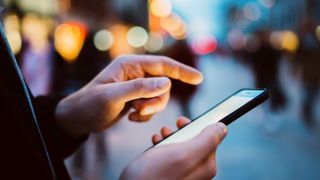NSA warns smartphone users of ‘large scale data tracking’
Common features like Bluetooth and Wi-Fi can reveal sensitive details about users like their daily routines

The National Security Agency (NSA) has advised those involved in sensitive lines of work, as well as the privacy-conscious, to deactivate many common smartphone features to prevent leaking insights from their location data.
Equipment such as wireless sniffers can be used to track your location data through any combination of GPS and wireless signals such as Wi-Fi and Bluetooth, even if mobile phone service is deactivated, the NSA has claimed.
Even if all wireless radios are disabled on your smartphone, various sensors on your device provide sufficient data to calculate location, while Bluetooth settings in some devices mean it can never truly be disabled, betraying your data.
The risk extends beyond smartphones, to Internet of Things (IoT) devices and fitness trackers as well as smart medical devices and built-in vehicle communications. Apps and social media services, meanwhile, may collect and aggregate data that exposes a user’s information. Many of these request permission for location and other resources that are not needed for their functioning.
“Location data can be extremely valuable and must be protected. It can reveal details about the number of users in a location, user and supply movements, daily routines (user and organizational), and can expose otherwise unknown associations between users and locations,” the advisory said.
“Mitigations reduce, but do not eliminate, location tracking risks in mobile devices. Most users rely on features disabled by such mitigations, making such safeguards impractical. Users should be aware of these risks and take action based on their specific situation and risk tolerance.”

Staying ahead of the game in the world of data
Create successful marketing campaigns by understanding your customers better
The organisation, speaking to the sensitive nature of the work done by US security officials and others in sensitive roles, added that users should apply mitigations to the greatest possible extent.
Get the ITPro. daily newsletter
Receive our latest news, industry updates, featured resources and more. Sign up today to receive our FREE report on AI cyber crime & security - newly updated for 2024.
Those concerned about compromising their location data should disable location services as well as Bluetooth and Wi-Fi when these services aren’t needed. Airplane mode should also be enabled when devices aren’t in use.
In addition, apps should be given as few permissions as possible, including setting privacy settings to ensure apps are not using or sharing location data. Users should also avoid using apps related to location if possible since these inherently expose user location data.
Among other changes, advertising permissions should also be disabled to the greatest possible extent and the advertising ID should be reset on a regular basis, weekly at a minimum. This is in addition to using a virtual private network (VPN), turning off features that allow you to track a lost or stolen device, and minimise web browsing.

Keumars Afifi-Sabet is a writer and editor that specialises in public sector, cyber security, and cloud computing. He first joined ITPro as a staff writer in April 2018 and eventually became its Features Editor. Although a regular contributor to other tech sites in the past, these days you will find Keumars on LiveScience, where he runs its Technology section.




